confessions of a former artist
a few theories on why we stop creating, courtesy of "la la land"
I can categorize my life by periods of fixation.
In high school, I was deeply into Homestuck for a solid year. I got really into the Les Miserables movie when it first came out. There was also, of course, Christopher Paolini’s Inheritance Cycle (grade seven) and The Hunger Games (grade eight) and Doctor Who (grade nine). What can I say? I was a Tumblr kid.
While I cycled through hobbies in a similar way, art and drawing was one of my most enduring interests at that age. In elementary school, my mom enrolled me in private art lessons, which meant that on Fridays I missed recess to sit scribbling at a ridgy desk. In high school I was in art classes each year and carried a sketchbook around everywhere with me, tirelessly drawing my own interpretations of my favourite characters from shows, books, and movies (Legolas and Arwen et al).
For Christmas in grade ten, my parents gave me a digital drawing tablet and I, holed up in my room with a Macbook, navigated the labyrinthine controls of Photoshop to crank out colourful artworks, one of which won a blue ribbon in my school art fair. Without thinking too hard about it, I revelled in the joy of creating. I began to develop my own style. I considered applying to SCAD. I scrolled through the feeds of digital artists I admired and told myself that if I kept going, one day I might make art as good as theirs.
Until one day, I put down my drawing supplies and never picked them up again.
I’m sure I don’t have to tell you that being a creative person tends to come with some particular neuroses. If there’s one battle I’ve spent the most time fighting in regard to my creative impulses, it’s the fear that whatever I make won’t be good, and that I might be better off not making it at all.
In my third year of undergrad, I took a novel-writing masterclass with a professor whose impatience with my writing cut my sensitive writer heart to the quick. Class after class, I offered my writing to the class and watched it get torn apart, for reasons that were fair. I’d been reading and writing my whole life, but I had no idea how to come up with a plot. I wrote assemblies of aimless scenes in which characters blinked and coughed and had crushes and thought deep thoughts. Going to my professor’s office hours for help with my dialogue, which was consistently empty and wooden, he asked me what my reading habits were, and when I told him I loved fantasy and science fiction, he laughed. “That’s why you can’t write dialogue,” he said. “Because all you read is fanciful bullshit!”
At the end of the year, I turned in 50,000 words of total garbage—the same scenes cut and pasted into different configurations, a slapdash effort to get me through the class —and then I put down my pen and did not write fiction for over a year. My writing was bad, I thought. And if I could not write something good, I would just not write at all.
Sometimes we stop creating because we get too scared to go on. I recently showed my old drawings to an illustrator friend of mine. It made me feel wistful to look at them: why have I spent the last ten years not drawing? Should I pick it up again?
This friend lamented to me that illustration often isn’t taken seriously as an art medium because of its association with childhood and children’s stories. Children draw all the time, she said; why do many of us lose that desire to transcribe what we see as we get older? Do we forget to hold on to our playfulness? Is it beaten out of us? Did I let it get beaten out of me?
Other times, we stop creating because we lose interest, or life gets in the way. Another longtime friend sat across from me recently as we caught up over fish and chips. “I don’t do music anymore,” he told me. “I don’t have the time. You kinda have to choose.”
At first I was shocked by this. In our undergrad, he was first and foremost a musician, playing weekly at open mic nights. I rarely saw him at our club’s usual table in the university café without an instrument slung over one shoulder.
But then I let my shock give way to acceptance, because I get it—I live it. We don’t have the luxuries of endless time or money with which to become Renaissance people. Sometimes we fall out of love with the creative medium or the method. Sometimes consistency and discipline is downright boring. Sometimes other creative dreams win out, or other adult priorities take shape: I don’t draw anymore, but I write every day. My friend isn’t a musician anymore, but he’s a graphic novelist who finished a whole book. For others, maybe they channel the creative dreams of their childhood into solving problems at their jobs, or coming up with fun and beautiful ways to care for their children, or making cozy and restful homes.
There’s something to be said for those of us who work or care for others full time and only have so many extra moments to dedicate to creative hobbies. There’s also those among us who are neurodivergent and who, for example, may struggle to find the discipline (and enough dopamine!) required to sit oneself down in front of a blank page—I’ve been there, too.
It’s one thing to stop creating because we have limited time and money. It’s another to stop creating out of fear.
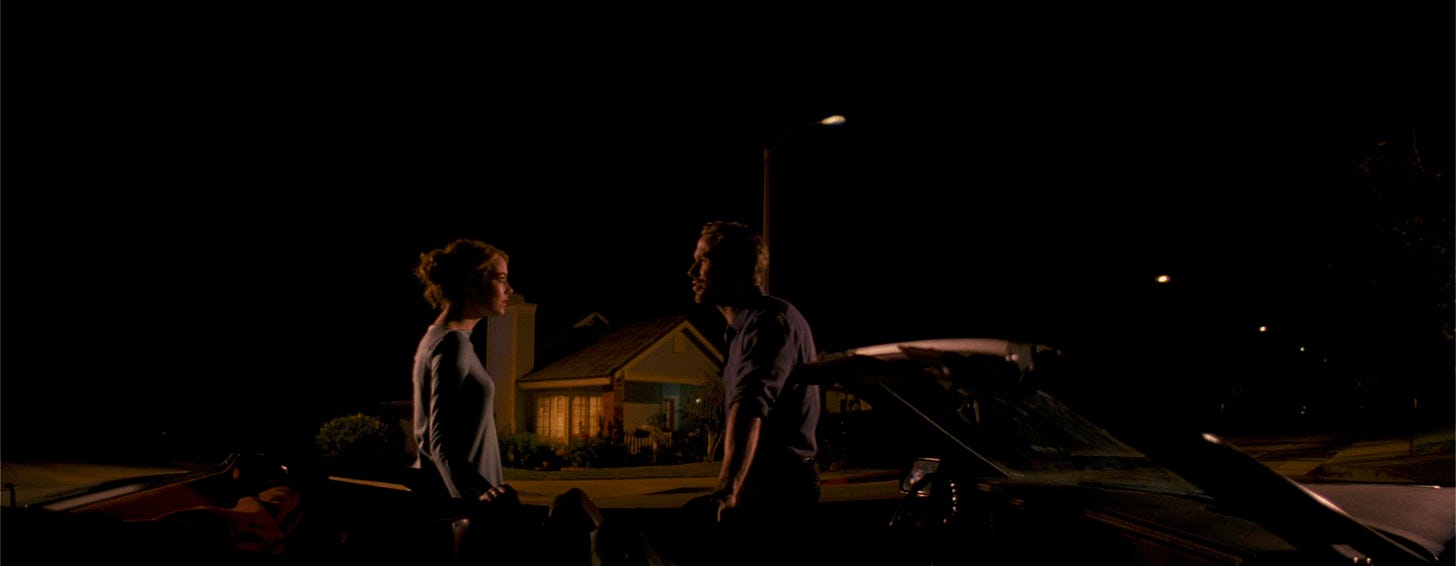
When we set out to create something, the gap between what we imagine and what we can achieve at our skill level is often huge. The more we create, though, the more this gap will close. To make good art, we have to face the fact that it will be bad before it gets good. We have to throw ourselves at how bad it is, and throw ourselves at rejection, over and over, or nothing will ever come of our effort.
I love the scene in La La Land where Mia articulates to Sebastian exactly how hard this process has been for her.
Mia: Because I’ve been to a million auditions, and the same thing happens every time. Where I get interrupted because someone wants to get a sandwich, or I’m crying and they start laughing, or there’s people sitting in the waiting room and they’re—and they’re like me, but prettier, and better at the—because maybe I’m not good enough… maybe I’m one of those people that has always wanted to do it, but it’s like a pipe dream for me, you know? And then you—you said it, you—you change your dreams, and then you grow up. Maybe I’m one of those people, and I’m not supposed to. And I can go back to school, and I can find something else that I’m supposed to do, because I left to do that, and it’s been six years, and I don’t wanna do it anymore.
Sebastian: Why?
Mia: Why what?
Sebastian: Why don’t you wanna do it anymore?
Mia: ‘Cause I think it hurts a little bit too much.
Mia’s monologue is coloured both by logic and fear. When I stopped drawing, or journaling, or writing, I had logical reasons for doing so that made sense to me. But those reasons covered up the fact that I was scared: scared I wasn’t good at it, scared of how vulnerable it made me feel, scared of what others would think of my work, scared of the difficult feelings that creating art sometimes uncovers in us. It was easier to stop than to keep pressing into that miasma of internal conflict. Simply put, I overthought my way out of being an artist.
After that novel class, even the thought of writing fiction sent a thrill of fear through me. I couldn’t even open a blank word processor. I let fear take years of creating away from me: I let it stop me from creating even things that would never be subject to outside judgment. I relegated my dream of finishing a novel to the distant someday.
Then, years later, a friend and I decided to write short stories for each other—a quick exercise, really—and I did something that I’d forgotten I knew how to do: I finished a piece of fiction.
I realised that maybe the ways that it hurt a little bit too much were self-inflicted. Why should my writing being bad stop me from continuing to write? If my writing was bad, did it reflect poorly on me in the long run? Really, who cares? Whose opinion on my work was I elevating above my own? Could it be possible that the reason I stopped was because I allowed myself to feel victimised by critique and let fear drown out my creativity?
My writing wasn’t bad because I was a bad writer. It was bad because I hadn’t written enough. I was making bad art because I was trying to become an artist. And how does one become an artist? They just keep going.
One thing my old writing professor did right was give a good grade to every student who turned in 50,000 words by the end of the year. It wasn’t about stylistic expertise, but about doing the work. And I, however unpolished and horrible the result was, did the work.
When I got feedback on my draft, my professor told me that I had what it took to make it as a writer—not because my work was all that good, but because when I got knocked down, I got up again and again. I had the tenacity. All I needed to do was use it to work on refining the skill of writing.
So here I am, working on it.
The years I didn’t spend writing and drawing are years I can’t get back. But if I can look back in one year, or five years, or ten, and remember the moments here and there that I filled in with creative projects, even ones that no one else may ever see? That’s the dream. And, as Sebastian says when he’s explaining jazz to Mia—a quote that I’ve always taken as a reflection on what it is to live creatively—“It’s conflict, and it’s compromise, and… it’s very, very exciting.”
Recent Faves:
📖: I recently finished A Gentleman In Moscow, which was such a delight! Now I’m reading the Chronicles of Narnia all the way through for the first time.
🎵: Khalid’s new album, Sincere.
📺: I’ve been enjoying the candy-coloured trainwreck that is Emily in Paris. This season the writing and acting seems a bit off, but I was never in it for the quality…!
🧶: My new bottle of Ferris Wheel Press Spadina Rose is now my go-to fountain pen ink.



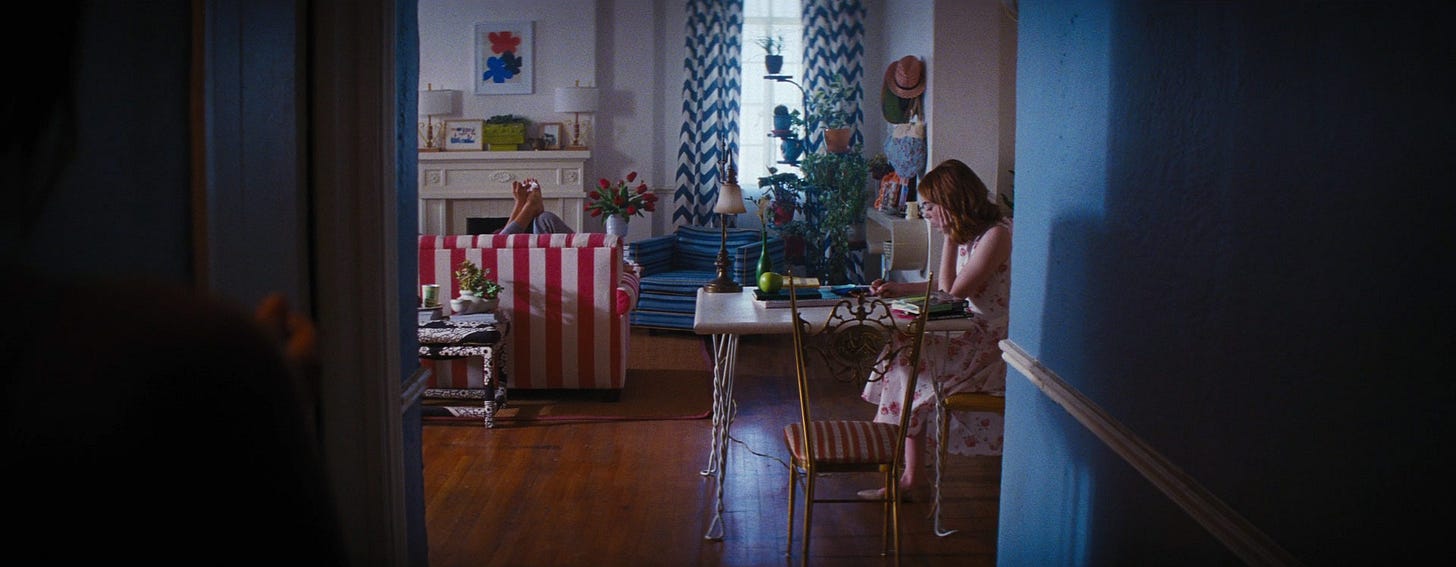
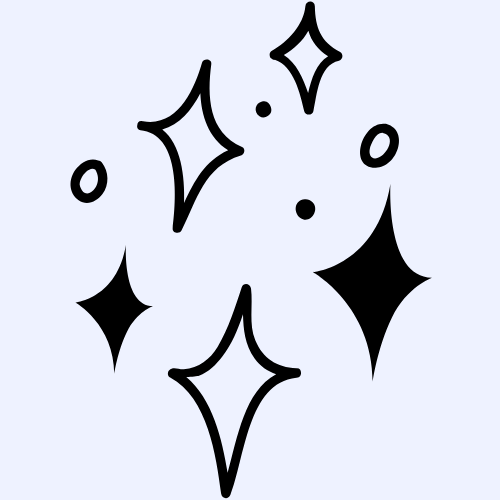
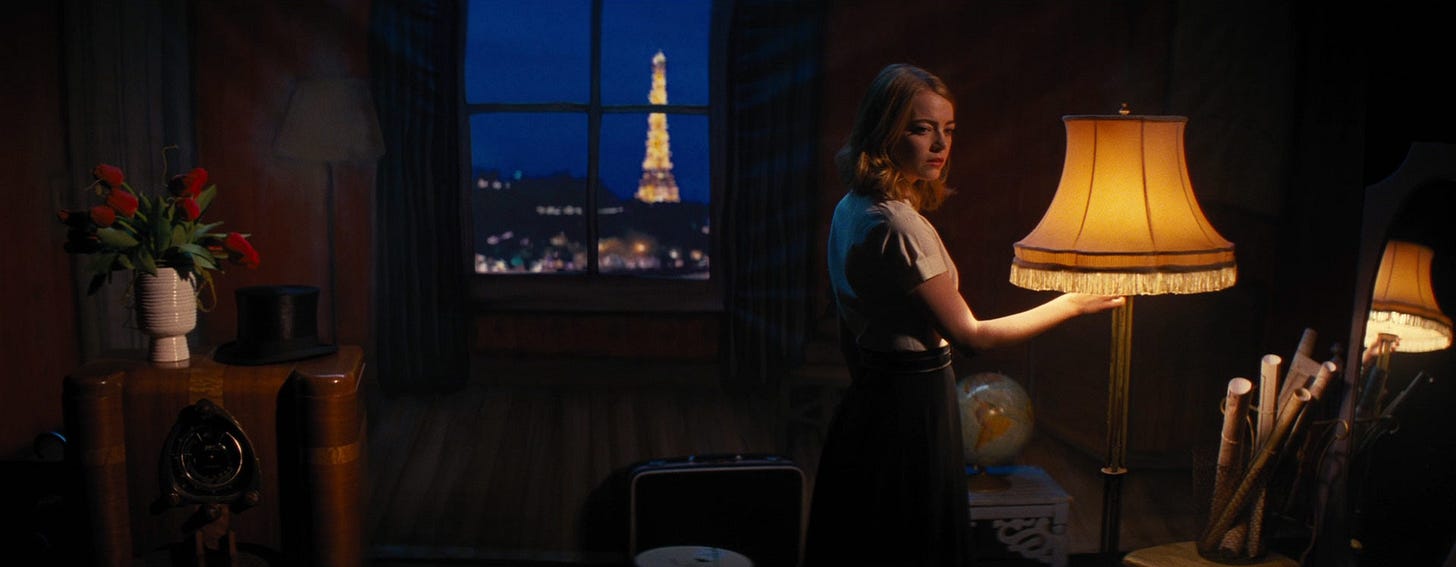
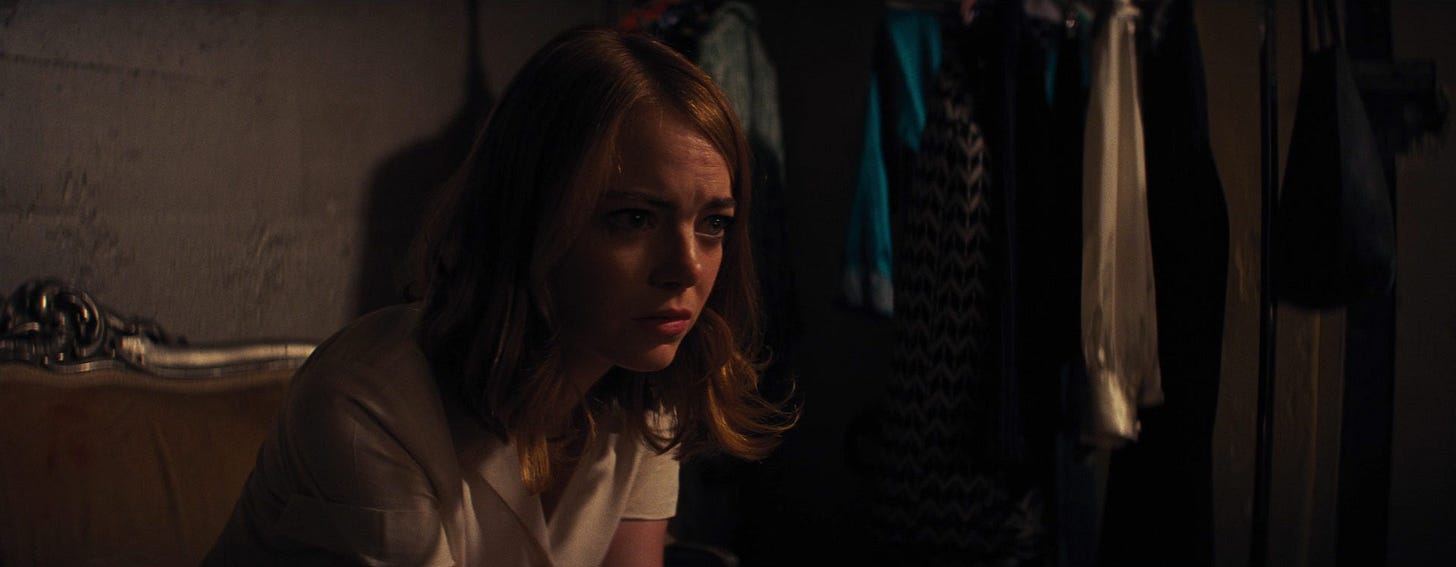
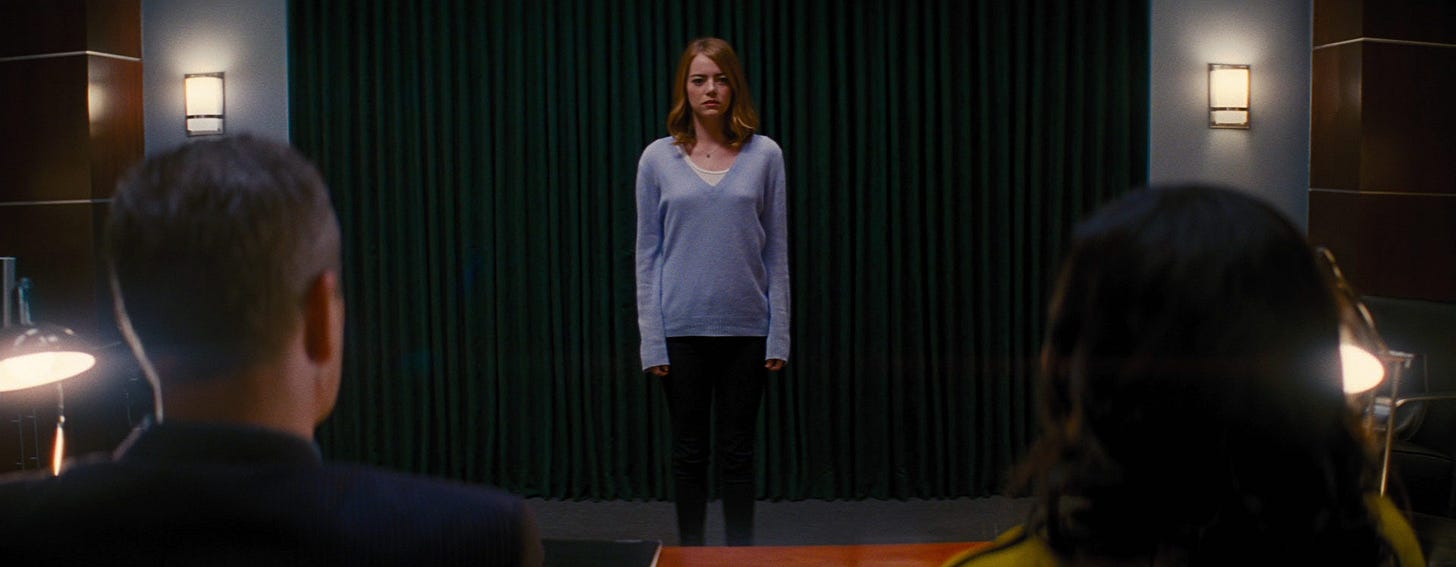
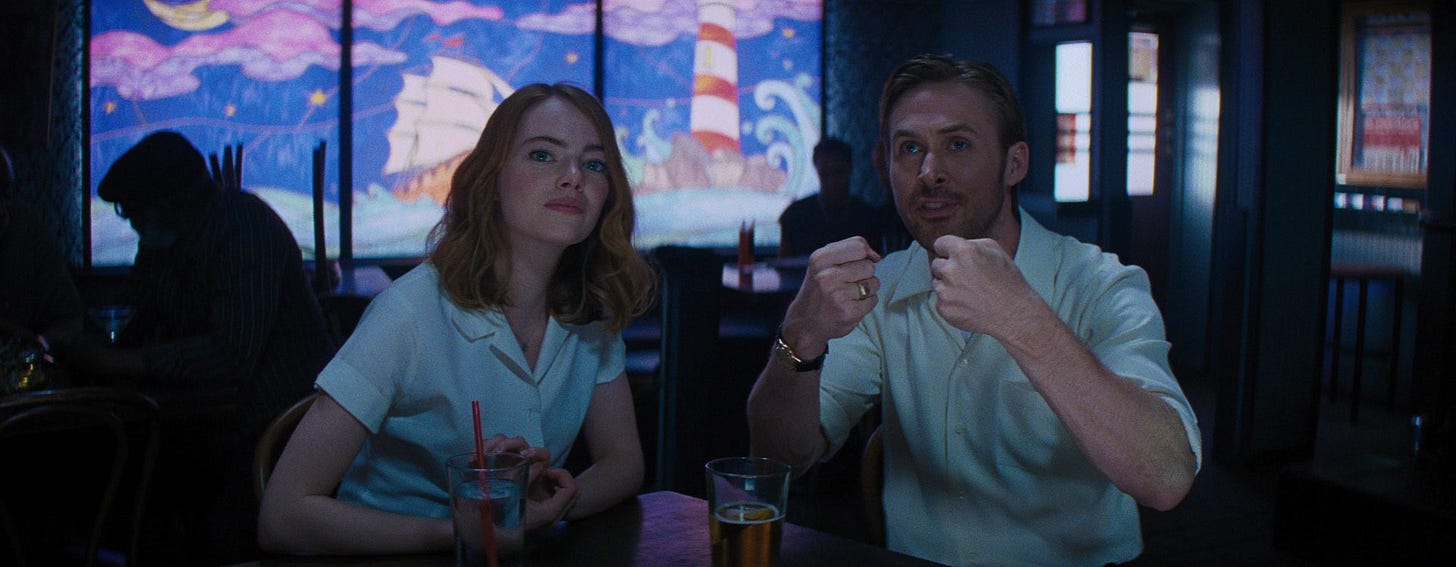
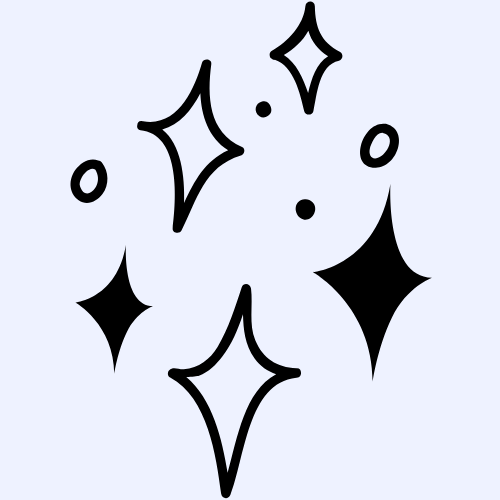
“how does one become an artist? They just keep going.” 🎯
Tenacity is such an under-appreciated part of creativity - and so is wonder! Super stoked for you to be a bestselling author one day and your old professor eats his words. Also, sci-fi/fantasy SELLS, so even if it is "fanciful bullshit" in his view, it reaches a wider audience of readers than, say, highbrow literature meant for select few who only value art that isn't for the masses. And isn't reaching readers part of the great desire of writing? Take that, professor!!